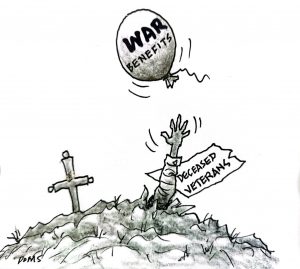The remaining Filipino veterans of World War II are fast disappearing, and their plight demands urgent attention. Many of them have not fully received the recognition and support they deserve, despite their immense sacrifices. As time slips by, fewer veterans are physically able to attend significant commemorations, like the Leyte Gulf Landings Anniversary, an event that once meant so much to them. This reality underscores the neglect that these heroes face not just in the realm of ceremonies, but in the benefits they are owed.
In previous years, these veterans were regular attendees of the Leyte Gulf Landings commemoration, where they were honored for their bravery during the war. However, as they grow older, fewer veterans are physically capable of making the journey, if they are even still alive. Their absence at these ceremonies serves as a painful reminder of how time and a lack of sufficient support have eroded their ability to participate in events meant to celebrate their heroism. It’s tragic to think that these men, once strong enough to stand up to an invading force, now find themselves too frail to stand at all.
The issue of unclaimed war benefits further highlights the unfair treatment these veterans have endured. Many have fought for decades to receive the compensation promised to them, only to be met with bureaucracy, red tape, or outright neglect. Some have passed away waiting for these claims to be settled, leaving their families to shoulder the burden of their medical and living expenses. Those who do receive benefits often find that the support is inadequate for their needs, particularly as healthcare costs rise.
Health-wise, the remaining veterans are in dire straits. Most of them are in their late 90s or even past 100, and many suffer from a host of age-related health issues. Without substantial government support for their medical care, these veterans are left dependent on family members or charity organizations to survive. For those without family, life becomes a daily battle for necessities like food, medicine, and shelter. It’s a disgrace that men who risked their lives for the nation are now left to struggle in their twilight years.
The government and related agencies must prioritize not just the timely release of benefits, but also the welfare of these veterans in their final years. The few who remain should not have to spend their last days in poverty, waiting for help that never arrives. Expedited claims processing, increased healthcare assistance, and proper recognition at ceremonies like the Leyte Gulf Landings should be non-negotiable. We owe it to these veterans to ensure they are treated with the dignity they deserve.




